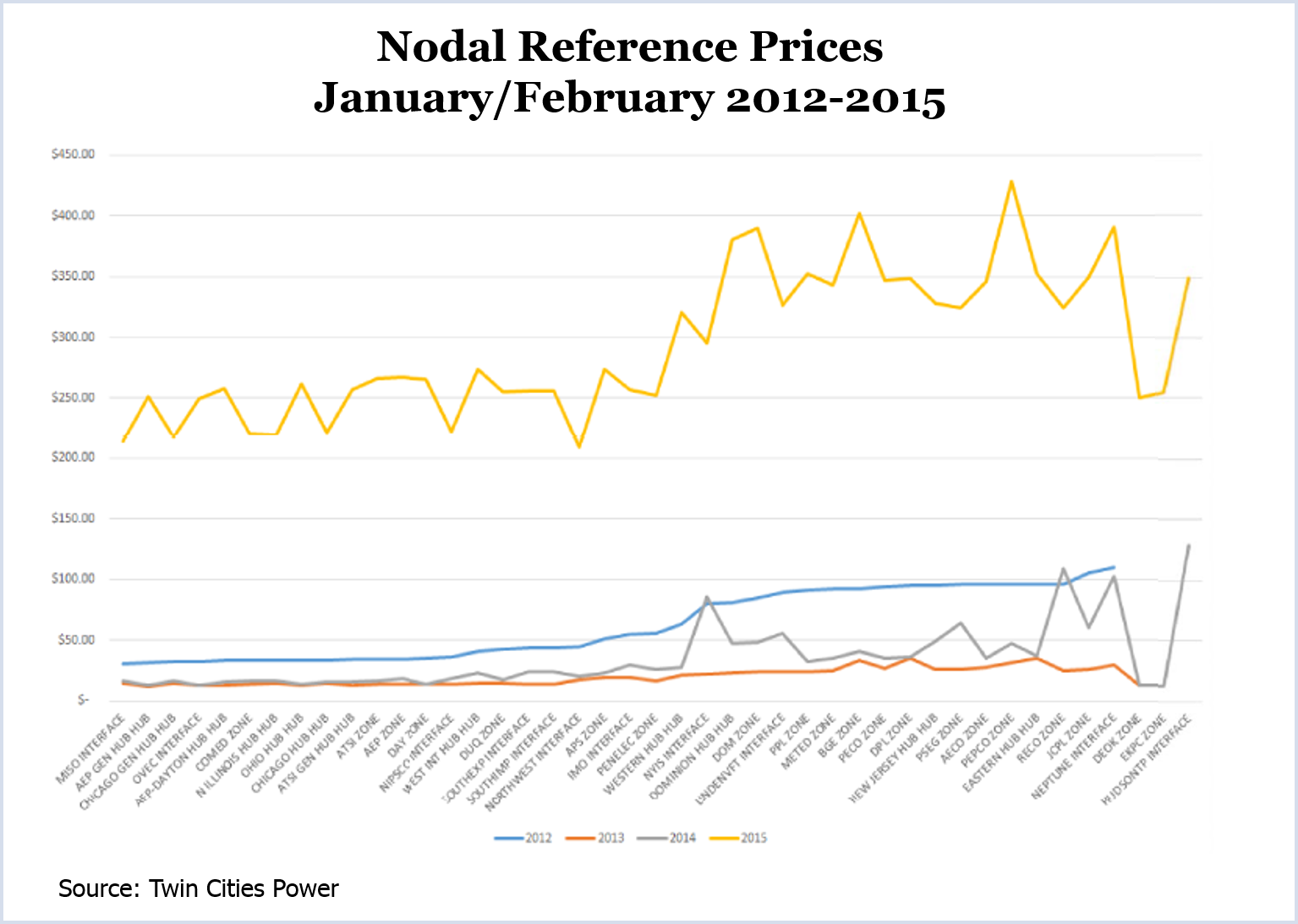
The Market Implementation Committee Wednesday approved a problem statement to consider changing the credit requirements for increment offers and decrement bids, which are based on nodal reference prices. Stephanie Staska of Twin Cities Power said the change is needed because extreme conditions last winter will result in much higher reference prices and credit requirements next winter.
Staska said the reference price for trades at the PJM West Hub for January and February 2015 would be about $316/MWh under current rules, meaning a 50-MW on-peak INC or DEC would require $250,000 in collateral. At a 5% cost of capital, it would result in credit costs 10 times higher than in the winter of 2014 and far higher than equivalent trades in MISO or on the Intercontinental Exchange (ICE), Staska said.
Staska said such an increase will hurt liquidity in PJM’s market.
Barry Trayers of Citigroup Energy backed Staska’s proposal. “Throwing [January and February] out as an anomaly makes sense to me,” he said.
But PJM Chief Financial Officer Suzanne Daugherty said if a change is approved by stakeholders, she will ask the Board of Managers to refuse to submit it to the Federal Energy Regulatory Commission for approval.
“I don’t know what prices are going to do in January and February, which is why it makes me anxious to make an exception,” she said. “An anomaly suggests it can’t happen again.”
Daugherty acknowledged that there were no defaults by INC and DEC traders last winter. But she added, “You don’t just look at what has defaulted in the past. You look at what might default.”
The problem statement was approved with no opposition but 41 abstentions. A related issue charge passed with one objection and 42 abstentions.
The matter will be assigned to the Credit Subcommittee, which is already conducting a more comprehensive review of INC and DEC credit policies.



